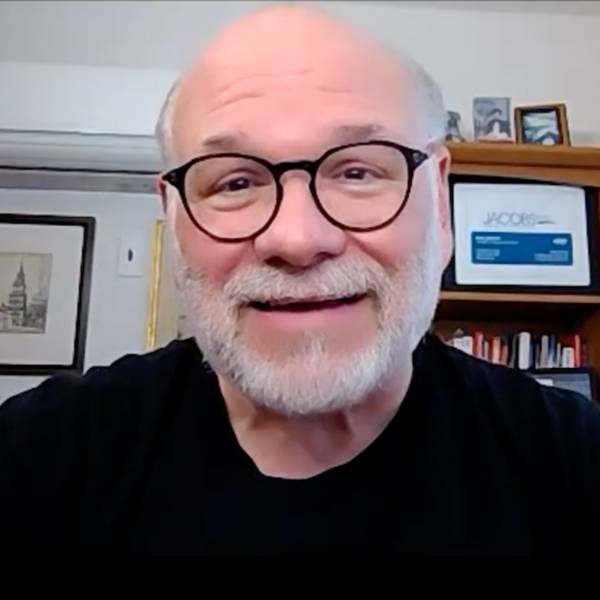How to Be a More Effective Leader Right Now
By Ken Jacobs
November-December 2023
I recently returned from PRSA’s ICON 2023 in Nashville, Tenn. — the first time I’d ever attended this global gathering of PR professionals.
In addition to presenting at the Leadership Rally on Oct. 13, I presented a workshop titled “11 Things You Must Start Doing NOW to Be a More Effective Leader.”
Here are six of them:
Earn your team’s trust and stand by them.
I believe this is the most important leadership action for you to take: Without trust, you don’t really have a relationship with your team. No relationship, no followers. No followers? You’re not a leader.
As Richard Jones of The Guardian Life Insurance Company of America said in a previous issue of Strategies & Tactics, “At the top of the list is trust. Effective leaders cultivate a high degree of trustworthiness. They do this by behaving ethically and by being open, honest and direct in interpersonal dealings.”
Treat people with respect.
The Queen of Soul, Aretha Franklin, was right, and not just about the role of respect in romantic relationships. To be truly effective, leaders must consistently treat everyone with whom they interact with respect. And that’s true no matter the quality of the work they might be discussing or the person’s behavior.
In fact, it’s when things aren’t going well that leaders must be careful to be respectful. And when it comes to respect and some other essential leadership actions, consistency is everything.
Be more transparent.
Companies and leaders that are more transparent are proven to drive some critical, palpable benefits. Niraj Ranjan Rout, the founder of Hiver, said that greater transparency leads to trust, fosters a collaborative work environment and improves employee empowerment. I hope you can see how impactful that can be in an era of employee disengagement.
According to the NeuroLeadership Institute, leaders who communicate with transparency boost employee engagement and performance and are seen as more trustworthy and effective. Further, transparent leadership is the most important predictor of employee happiness.
Many leaders resist transparency for fear that it will make their employees anxious or fearful. Perhaps surprisingly, quite the opposite is true, according to the Institute: “When leaders share information, reveal the reasons behind their decisions, and express their true feelings and vulnerabilities,” it instills a sense of psychological safety.
When you consider what many of your team members have experienced over the past three-plus years, I hope you agree that doing so is exactly what we need.
Set high standards for your own leadership.
This is where you should set the bar high, and don’t settle for less. Each week, reflect on how you led your teams.
Better yet, ask how the toughest graders on your team would grade you in the following areas:
- Did I truly earn their trust, and demonstrate that I have their backs?
- Did I let them know that I trust them back?
- Did I consistently communicate respect, no matter the situation?
- Did I listen more than I spoke? Much more than I spoke?
- Did I communicate to understand not to be understood?
- Did I communicate to hear, not to be heard?
- Did I not just delegate, did I empower?
- And did I INSPIRE?
Take care of yourself.
I believe that you’ve got to be at the top of your game to lead others. Your cup must be full to lead others to fill theirs. This year has been particularly challenging, and 2024 appears uncertain. So, the chance of your burning out is real.
If you haven’t yet put together the suite of things you need to be at your physical, mental and emotional best, then now’s the time to do so. If you once employed exercise, yoga, meditation, mindfulness or some combination of these, now’s the time to return to them.
There’s a reason that flight attendants tell us to put on our own oxygen masks before we help our traveling companions. The same is true here. If you want to take care of your people, then you must take care of yourself.
Expect superior performance, not perfection.
Perfectionist leaders, and those with perfectionist tendencies, think they’re driving their teams to enhanced performance. What they’re actually doing is driving their employees out the door, or at least to a state of disengagement.
Since “perfect” is impossible, when you expect, encourage or — worse — demand perfection, you’re expecting, encouraging or demanding the impossible. What impact do you think that has on their morale, engagement and desire to follow you?
Perfectionism delays getting the work out, and it can ultimately lower work quality because your team members — knowing that you’re going to edit their work to a fare-thee-well — simply stop trying.
So, unless you’re Michelangelo creating “David,” stop expecting perfection.
Ken Jacobs shared leadership tips during a recent Strategies & Tactics Live in LinkedIn. Watch a replay here.



